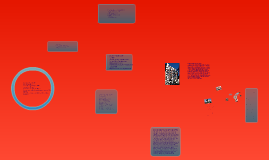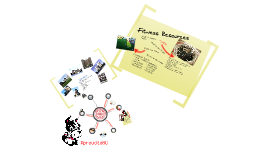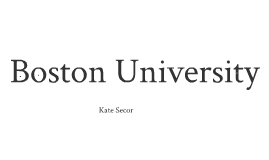Boston University!!!
Transcript: Boston University High School Preparation Required units: 15 total English 4 Foreign Language 2 Math 3 Science 3 Of Science, units that must be lab 3 Social Studies 3 Recommended units: 20 total Foreign Language 4 Math 4 Science 4 Of Science, units that must be lab 4 Social Studies 4 Note: Pr-calculus required. Social studies should include history. Home-Schooled Students Students should contact Office of Admissions prior to application. Transfer Students Transfer admission stats for fall term: Applied: 2,515 Admitted: 711 Enrolled: 224 Terms in which transfers may enroll: Fall, Spring Transfers accepted at these levels: First-semester freshman, second-semester freshman, sophomore, junior Admission requirements for transfers: Required of All: High School Transcript, College Transcript(s), Essay or Personal Statement, Standardized Test Scores, Statement of good standing from Prior Institutions(s) Not Required: Interview Lowest grade earned for any course that may be transferred for credit (on a 4.0 scale): 2.0 Additional requirements for transfer admission: Transfer Student Status Report required. Other Admissions Require Admission requirements: Essay(s) required Required: SAT Reasoning Test or ACT If submitting ACT, the writing section is required Required: SAT Subject Tests Very important admission factors: Rigor of secondary school record Important admission factors: Class Rank Application Essay Recommendations Standardized Test Scores Academic GPA Considered: Alumni Relation Character/Personal Qualities Extracurricular Activities Geographical Residence Racial/Ethnic Status State Residency Volunteer Work Work Experience First generation college student Level of Applicant's Interest In-state tuition and fees: $41,420 Out of State Tuition $41,420 Room and board: $12,710- living on campus $2,136- living at home $12,710- 12,710 Books and supplies: $940- living on campus $940-living at home $940- Commuting,not living at home Estimated personal expenses: $1,290-living at campus $1,290-living at home $1,290-commuting,not living at home Transportation expense: $562-living on campus $2,276-living at home $562-Commuting,not living at home Cost per credit hour: $1,276 Scholarship and Financial Aid Information Financial Aid Statistics Full-time freshman enrollment: 4,409 Number who applied for need-based aid: 2,685 Number who were judged to have need: 2,230 Number who were offered aid: 2,225 Number who had full need met: 1,271 Average percent of need met: 90% Average financial aid package: $34,533 Average need-based loan: $6,226 Average need-based scholarship or grant award: $23,413 Average non-need based aid: $19,620 Average indebtedness at graduation: $31,809 EFC Calculator Compare Your Aid Awards Financial Aid Distribution Percent of total undergraduate aid awarded as: Scholarships / grants: 68% Loans / jobs: 32% Non-need-based aid determined by: Academics Alumni Affiliation Art Athletics Leadership Music/Drama ROTC Religious Affiliation State/District Residency Need-based aid determined by: Academics Art Leadership Minority Status Music/Drama What does the office of the Dean of Students offers? Dean's Scholarships; $10,000 (renewable); based on strong academic credentials, for students who have applied for need-based financial aid but have financial resources that exceed cost of attendance. Dr. Martin Luther King, Jr. Scholarship; full-tuition; for academically gifted students with proven leadership abilities and strong commitment to social justice and community involvement. Does the college offer a program for your planned major? Acting If starring in high school productions of such stage classics as Antigone, The Crucible, or Grease has given you the acting bug, you may want to study acting at the college level. What skills will you need to play your characters more convincingly? What is the subtext of a play? How do actors make stage combat look real? You’ll find the more you study acting, the more you learn about the preparation it takes to bring a character to life on stage or on screen. Acting students learn how to portray dramatic characters and their thoughts, moods, and feelings. Classes include instruction in voice for the actor, movement, improvisation, theater history, and actor coaching. Boston University of Culinary Arts Over 400 Hours of Instruction Instruction through lecture, demonstration, and hands-on cooking experience in stocks, soups and sauces; egg dishes; seafood, poultry and meats; vegetables; pastas; rice and other grains; herbs and salads; fruits; breads; and pastry and other desserts. Ethnic and regional cuisine, the history of food, menu planning, equipment handling, nutrition, food writing, the economics of running a restaurant, the study of wines, field trips, and sanitation training are incorporated into the curriculum. State-of-the-Art Demonstration and Kitchen Facility Your hands-on learning experience will be enhanced in our extra-spacious kitchens, which boast the latest

















